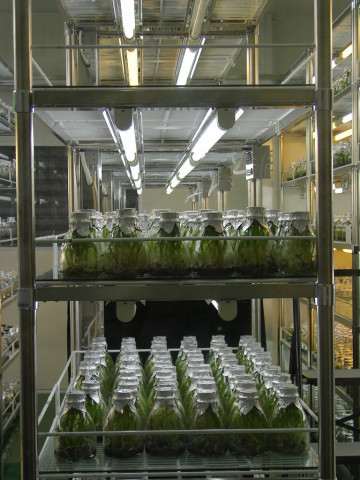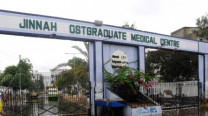Bio-terrorism: Call for safety measures to avoid risks
Japanese Ambassador Hiroshi Inomata, in his inaugural speech, says biosciences and biotechnology are advancing rapidly

Japanese Ambassador Hiroshi Inomata, in his inaugural speech, says biosciences and biotechnology are advancing rapidly. PHOTO: FILE
Speakers at an international workshop Wednesday called for strict safety measures to avoid potential risks of bio-terrorism.
The workshop on “Raising Awareness on Dual Use Concerns in Biotechnology” was organised by Department of Biotechnology in collaboration with School of Politics and International Relations Quaid-i-Azam University (QAU).
Speakers in their presentations highlighted the great risks associated with the misuse of knowledge and emerging techniques, such as creation of pathogens with unique properties or completely novel pathogens that can be used as weapons or inadvertently harm life, material or the environment.
Japanese Ambassador Hiroshi Inomata, in his inaugural speech, said that biosciences and biotechnology are advancing very rapidly and are seen as a major instrument in controlling various diseases, increasing productivity of crops and many other positive outcomes.
However, as emerging technologies such as genetic engineering and synthetic biology advance and becoming more widely accessible to use, it is anticipated that the misuse concerns will increase, he said.
“In a dynamic global environment and the overwhelming asymmetric threats from the non-state actors, it is of utmost importance to understand the bio-security issues and initiate a coordinated global effort to cope with bio-security and bio-safety breaches and develop an effective response mechanism”, he added.

The ambassador said environmentalists can play a critical role in determining how these emerging and converging technologies are ultimately developed and used.
He urged the need for rethinking current governance approaches to control DNA synthesizing technologies.
He said that responsibility of bio-risk management resides mainly with the top management. They should ensure that the roles, responsibilities and the authorities associated to Bio risk management are defined, documented and also communicated to those involved in the management, performance and verification of biological agents and toxins.
Chief organizer of the workshop and Chairman Department of Biotechnology, Quaid-i-Azam University Prof Dr Zabta Khan Shanwari said the development of genetic engineering and bioscience technologies also have raised a risk of bioterrorism and toxic pathogens that released from our laboratories and industries can be its source.
“If such new types of toxic mutant virus/pathogen come to our environment they could badly affect our agriculture and other living organisms including human being. The workshop will help us develop new policies and practices that will address a variety of ethical concerns arise from biomedical research” he added.
QAU Vice-Chancellor Prof Dr Etzaz Ahmed said that a wave of discoveries in the life sciences supported by new enabling technologies and drawing on many fields beyond biology is yielding great social and economic benefits.
However, the challenge for scientific community is to respond the concerns which can be considered part of the broader relationship between science and society, he added.
Higher Education Commission Executive Director Dr Mukhtar Ahmed, Upper Dir University Vice-Chancellor Prof Khan Bahadur Marwat, QAU School of Politics and International Relations Director Dr Zafar Nawaz Jaspal, policymakers, senior faculty members, researchers and students attended the conference.
The workshop was a part of the European Union (EU) Chemical, Biological, Radiological and Nuclear (CBRN) Centres of Excellence (CoE) Risk Mitigation Initiative and Inter-Academy Panel through Pakistan Academy of Sciences.
Published in The Express Tribune, March 27th, 2014.



















COMMENTS
Comments are moderated and generally will be posted if they are on-topic and not abusive.
For more information, please see our Comments FAQ